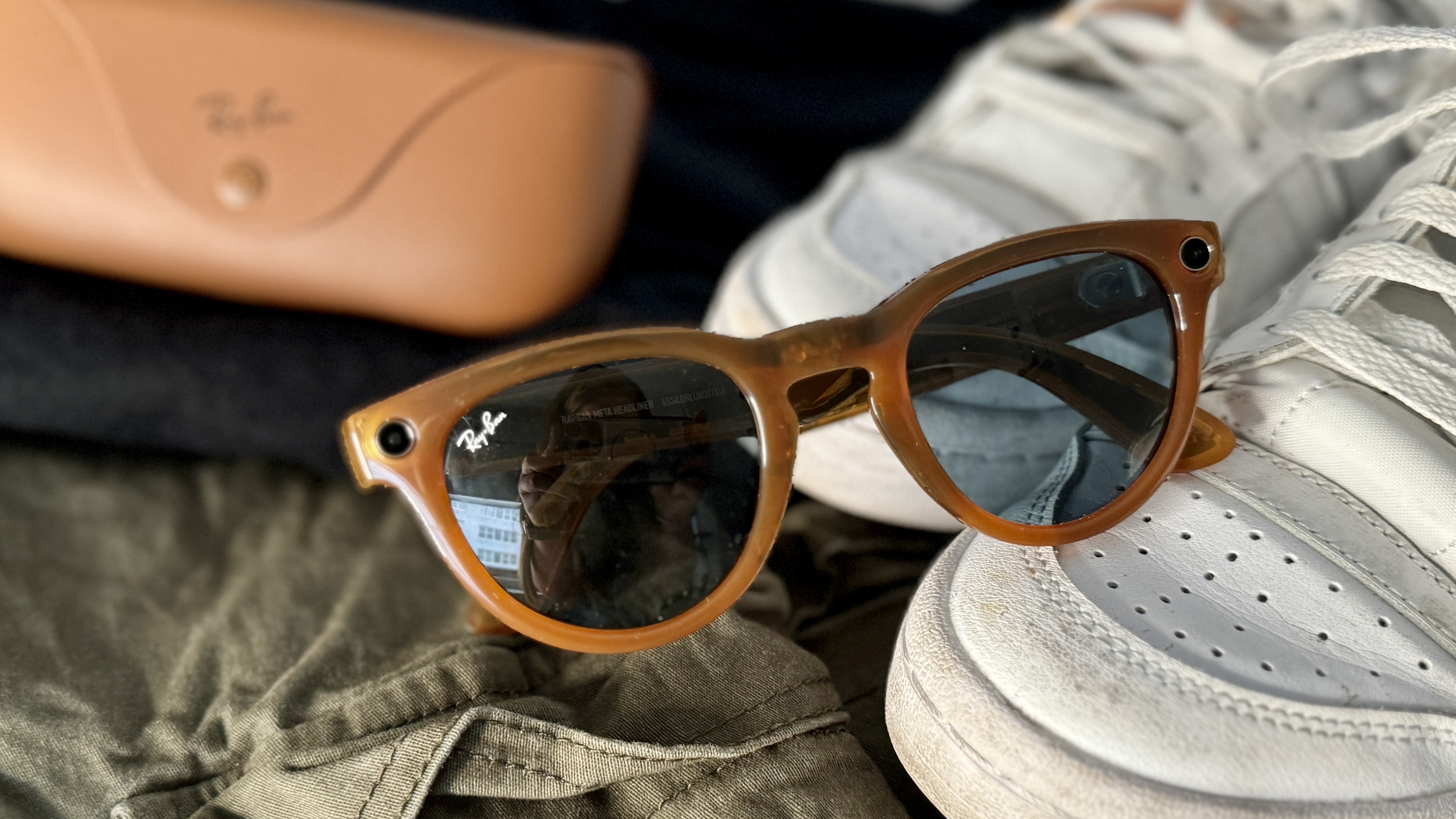Snapchat takes on Meta with AR glasses for developers to rent at $99 a month — here's what they can do
You can't actually buy these

Snap has just unveiled the next generation of its Spectacles glasses with further enhanced AR capabilities. But unlike the company's previous offerings, which let you just record videos for Snapchat, this version puts the equivalent of a 100-inch screen in front of your eyes. It does this with a pair of micro-projectors inside the redesigned (and still quite bulky) frame.
That frame also supports two Snapdragon processors, vapor chamber cooling and four cameras that serve the hand-tracking tech on board. In a nutshell, Snap is engaging in a bit of an arms race with Meta to see which company can crack the smart glasses market first.
But there's a pretty hefty catch associated with these Snapchat Spectacles — you can't actually buy them.
Instead, Snap is offering them to developers for the eyebrow-raising subscription price of $99 per month for at least 12 months. Or, to put it another way, $1,188 across a year to access this tool in order to develop for it. Apparently, the hope for Snap is that this enthusiasm will pay off with a ton of third-party apps and features that consumers can use if and when Snap produces another pair of public-facing AR glasses — something the company might not do until the end of the decade.
“Our goal is really to empower and inspire the developer and AR enthusiast communities,” Snap CEO Evan Spiegel told The Verge. “This really is an invitation, and hopefully an inspiration, to create.”
This isn't a new approach; the company pulled the same trick with last year's Spectacles and is believed to only be producing less than 10,000 units of this latest generation.
Not that you'll be wearing them yourself anytime soon, but if you're curious the glasses run on Snap's own OS platform, support voice commands and battery life is touted as 45 minutes.
Sign up to get the BEST of Tom's Guide direct to your inbox.
Get instant access to breaking news, the hottest reviews, great deals and helpful tips.
There are a few new features this time around; hand-tracking utilises a couple of infrared sensors for pinch and pull gestures. This can be implemented for games or reference apps — think a 3D interactive representation of the human body or a car engine — providing developers get on board. Similarly, Snap has increased the field of view which would come in handy when, for example, you want to load up a couple of browser windows in the space in front of you.
If Snapchat is successful in wooing development talent to its cause, then the company could have a real shot at producing a market leader overshadowing the likes of the Xreal Air 2 and Viture Pro glasses. But the real competition for Snap is much closer to home.
The battle with Meta

Because both Snapchat and Facebook want you to be using their platform all the time for everything, their respective parent companies are moving the experience off your phone and onto your face.
While Snap has unveiled the fifth generation Spectacles this week at the annual Partner Summit in Los Angeles, Meta isn't far behind. The company will likely unveil its long-rumored Orion AR glasses at next month's Meta Connect event. The new specs are said to offer a wider field of view and deeper integration of its Meta AI assistant than we saw on the Ray-Ban version from last year.
Earlier this year, Meta CTO Andrew Bosworth described the Meta Orion AR glasses as "the most advanced piece of technology on the planet in its domain." Big talk indeed.
In the meantime, if you're deciding on whether or not a pair of AR glasses would be a good fit for you, find out what happened when our writer wore them for a full year to record his memories.
More from Tom's Guide

Jeff is UK Editor-in-Chief for Tom’s Guide looking after the day-to-day output of the site’s British contingent.
A tech journalist for over a decade, he’s travelled the world testing any gadget he can get his hands on. Jeff has a keen interest in fitness and wearables as well as the latest tablets and laptops.
A lapsed gamer, he fondly remembers the days when technical problems were solved by taking out the cartridge and blowing out the dust.
